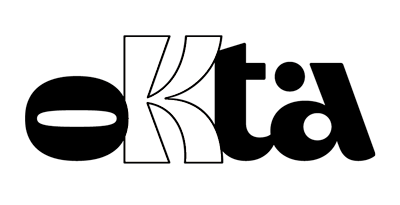The RBS Group published a valuable investigation in 2013 about the future of the communication industry. The research aimed to understand the transformations in communication in the digital age. Various communicators, philosophers, historians, journalists, academics, and researchers were interviewed. Based on the perspectives and predictions of these experts, they compiled 11 relevant premises that remain highly current and continue to transform the way we communicate. Is your company prepared for this revolution?
# BE TRUE
Be authentic, be true. Communication with your audience is increasingly transparent. Therefore, you must position yourself clearly, coherently, and truthfully. Your consumers are well-informed and can easily identify your mistakes. There is no problem in making mistakes, as long as you admit them. However, there is a problem with being false. Falseness is inconsistent, does not enchant, and does not engage.
# BE TRUSTED
Be a company your audience can trust. Your audience wants to trust you completely. However, keep in mind that reliability is built through two-way dialogue and relationships. Therefore, be truly reliable. Listen more to your consumers, discover their needs, deliver value, and surprise them.
# BE PART
We are living in a multidimensional world. We are living in a culture of participation and sharing. Destroy your barriers and walls. Nowadays, it is unacceptable to lock away and guard information, ideas, and projects. Be part of the community, get closer to people, and humanize your company.
# THINK PLURAL
We are multifaceted, we are different. So why polarize concepts and ideas? Why believe in absolute truths? The truth allows for various interpretations. Therefore, think openly, flexibly, and diversely. Build projects through dialogue and collective creation. Acknowledge differences and respect each one of them.
# THINK MOBILE
The world is becoming increasingly mobile: accessible, convenient, and borderless. Therefore, think mobile! Developing projects and content for mobile platforms means being always present, coexisting with your audience, sharing personal moments, providing experiences, and being flexible.
# BE BETA
Always be in "beta." Always seek alternatives, innovations, and new ways to satisfy your consumer's desires. Question, critique, search, research, evaluate. Do not cling too much to ideas, because doing so prevents you from noticing other opportunities. Be open to change, as definitive decisions tend to stagnate.
# THINK AHEAD
Think ahead. Therefore, avoid common sense or absolute certainties. Avoid everything every day and habitually. Break your routines. Do not be so afraid to take risks. "Thinking outside the box," despite being cliché, still holds much meaning. Viewing problems from new perspectives will allow you to generate ideas and solutions outside the usual.
# THINK HIGHER
Have a purpose and create relevant meanings for your consumer. As a company, you can and should improve people's quality of life. Think broadly; do not limit yourself to your world. Recognize social, economic, political, ecological, and cultural issues and help solve them. Be responsible and grateful.
# BE COLLABORATIVE
The era of collaboration demands the building of alliances. Do not try to embrace the world. Concentrate your efforts on what you are really good at and have partners to develop what you do not know. However, work with win-win relationships, contribute, and collaborate with the growth and strengthening of your network.
# BE INTUITIVE
Look carefully, have a peripheral vision of problems, and perceive the world with all your senses. Too much focus harms holistic vision and understanding of interrelationships between events. Avoid Cartesian thinking. Develop a fluid and flexible way of thinking. Discover with intuition but demonstrate with logic.
# BE USEFUL
Being useful is closely related to customer satisfaction. The usefulness of your product or service is not in what you say or how you do it but precisely in how your audience perceives what you deliver to them. Therefore, investigate your audience to develop truly useful value propositions.
Learn more about the study "The Communication (R)Evolution" by the RBS Group at www.thecommunicationrevolution.com.br
